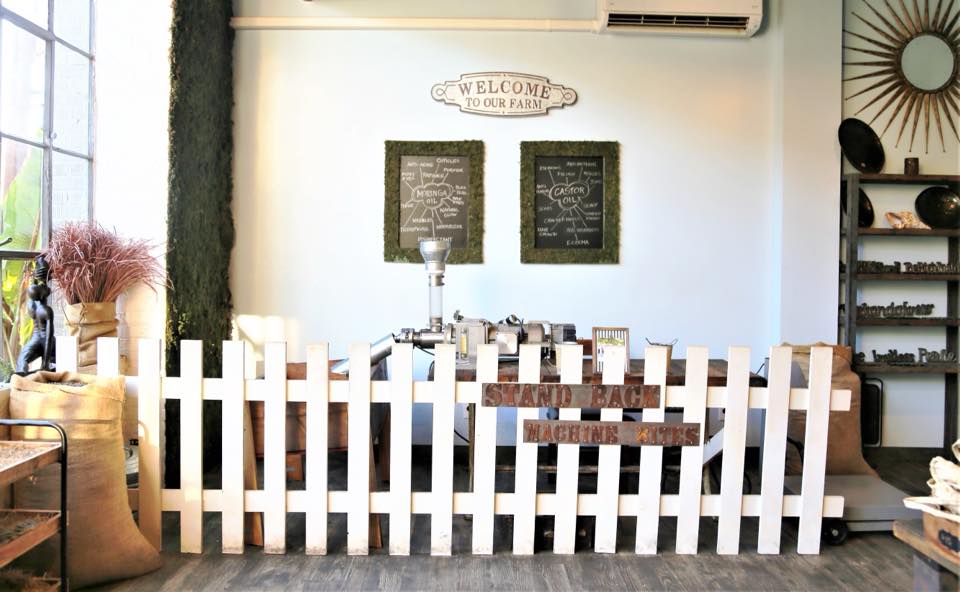Located at 96 Knickerbocker Avenue in the Brooklyn borough of New York City, Papa Rozier Farms opened its store doors in 2018. Haitian American siblings Rubens Amedee and Fredeline “Freddie” Amedee-Benjamin created the boutique store as one of their outlets to re-develop their homeland after the devastating earthquake of 2010.
They were very connected to Haiti though they were reared in Brooklyn after their parents emigrated the family from Port-au-Prince when the brother and sister were children. The brother, a private-practice chiropractor, and sister, a trader on Wall Street, passionately sought meaningful ways to contribute in positively shaping the future of the island country.
For more than a decade, Amedee and Amedee-Benjamin researched and worked to develop a multi-tiered program to meet the diverse needs of their fellow Haitians. These needs are in economics, education, employment and health. In the story, “Papa Rozier Farms” at Black-Owned Brooklyn.com, the author detailed the siblings’ plan, informing that “First, the duo started an organic farm on 50 acres of land in rural Haiti owned by their late grandfather (yup, Papa Rozier Farms is a real place), creating 30 full-time jobs. On that same land, they built the BATI School, a K-12 institution designed to equip Haiti’s future with the transformative education needed to address the island’s challenges. Currently serving 85 students from kindergarten to second grade, the BATI School plans to build up each consecutive year.”
The outreach of the brother and sister continues to grow. Purchasing their products has an incredible domino effect in helping people in Haiti. It is their desire to educate more children while concurrently providing employment to adults. According to the website of Papa Rozier Farms, “As of 2019, the BATI School, with the help of Papa Rozier Farms, has 104 students ages 3-10. Scholars are in school 5 days a week and are provided 2 meals a day. The school and farm together employ 24 people within the community.”
Castor and moringa are grown on their family land in Haiti. They harvest the seeds in order to process them to produce high quality oils. They do not refine their oils, hence, there is no bleaching or deodorization involved. Because the oils are pure, they retain their natural scent. These oils are the basis of many of the products produced by Papa Rozier Farms.
Organically grown, the process to produce these oils takes more than one year! As per Papa Rozier’s website, processing moringa, for example, involves the following:
- Week 0: Moringa Seed is planted in our deep-red, mineral-rich soil;
- Week 10: The tree is taking shape, beautiful green leaves begin to grow!
- Week 36: The trees begin to bloom. The farm is filled with the beautiful scent of moringa;
- Week 44: The moringa pod ha formed, filled with oily, nutrient rich seeds;
- Week 52: Standard industry practice is to oven-dry moringa seeds. We let Mother Nature take care of ours. Our pods are dried under the sun on our patio; and
- Week 52+: The best seeds hand-picked from our crop are cold pressed and bottled. Ready to make you glow!
The pressing facility is housed in the retail farmhouse store in Brooklyn. There, the seeds are processed and bottled in the same manner as Papa Rozier, the siblings’ grandfather.
Products of Papa Rozier contain natural ingredients, such as bamboo, beeswax, charcoal, eucalyptus, Haitian cane syrup, Haitian honey, hibiscus, jasmine, juniper, lavender, lemon, oakmoss, rose, sage, vetiver and ylang ylang.
Aside from selling seeds, consumers may purchase numerous types of products, ranging from body butters, floral oils, incense, lip balms, lotion bars and salves to flight samplers and gift box sets. Also available are items for the body and home and they include diffusers, handcrafted wooden styling comb, jade rollers, luffas and sachets.
Rubens Amedee and Freddie Amedee-Benjamin can surely be proud of their awesome contributions to Haiti, the States and their consumers worldwide. She shares, “This all came out of a love for Haiti and a desire to do right by Haiti … Anything we do in here has a direct link to changing somebody’s life in Saint-Michel Du Sud, Haiti – a student, a parent, a farmer. Being able to tell them that we have jobs and a school because of what’s happening here in Brooklyn is awesome.”




